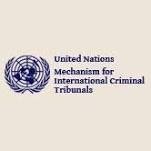Org. Setting and Reporting
This position is located in the Office of the Prosecutor of the International Residual Mechanism for Criminal Tribunals, in Arusha branch. The incumbent will work under the direct supervision of the Prosecutor and the Chief of Staff.
*Appointment of the successful candidate to this position will be subject to budgetary approval.
Responsibilities
- Conduct trial proceedings as the Prosecuting Attorney (leader of the prosecution team) on behalf of the Prosecutor before the Chambers;
- Supervise the prosecution of criminal cases, and is responsible for the management of the trial team and sets the direction of the case, being responsible for formulating positions taken before the Chambers, including in written filings;
- Coordinate and direct teams of trial attorneys, legal officers and investigators, guide and supervise the work of junior staff; organize and prioritize the workload and provide general coordination and supervision of legal assignments;
- Provide authoritative legal advice on a diverse range of highly complex or novel substantive and procedural questions of law;
- Organise and supervise the preparation of legal opinions, as well as oversee legal research and analysis, and prepare legal opinions, studies, briefs, reports and correspondence;
- Appear in court, being responsible for high level or complex witnesses where necessary;
- Sets the direction for investigations needed for the presentation of the case or to respond to the case for the defence;
- Coordinate with other senior officers on trial, appeal and core teams on issues common to their cases or that affect the office as a whole;
- Represent the Prosecutor in trials before the Chambers;
- Serve on various standing boards, committees, ad hoc working groups and task forces as required, promote the work of the United Nations and represent the organization at meetings, conferences, seminars, etc.;
- Contribute to review and design of new, or new applications of, legal instruments, policy, guidelines, systems, etc.
Competencies
- Professionalism: Knowledge of the genocide and crimes committed in Rwanda. Demonstrated experience carrying out a complex criminal investigation and utilizing criminal investigation techniques, and particularly use of analysis in complex investigations. Demonstrated experience conducting pre-trial and/or trial proceedings in complex criminal cases. In-depth theoretical knowledge, including knowledge of criminal law (both substantive and procedural), and extensive broad-based experience in applying legal expertise to analysing a diverse range of highly complex and novel legal issues and problems and in developing innovative and creative solutions, particularly in complex criminal cases. Superior skills in legal writing and expression and ability to prepare legal briefs, indictments, opinions, or legal submissions/motions and a variety of legal instruments and related documents for submission to senior officials or to the Chambers. Highly developed negotiating skills and ability to persuade and influence others to reach agreement. Demonstrated planning, management, and organisational skills and ability to coordinate the work of teams and individuals, ensuring the quality and timeliness of outputs and a good understanding of the dynamics of working in an international environment. Ability to defend difficult issues and positions before senior officials and to prosecute high profile indictees. Demonstrates professional competence and mastery of subject matter. Ability to adapt to changing circumstances and conditions during the course of the pre-trial proceedings and the ability to modify procedures and methodologies accordingly. Ability to think clearly and logically and analyze complex and obscure data from a myriad of sources. Supervisory skills, computer literacy, and proficiency in the use of software applications relevant to criminal investigations. Shows pride in work and in achievements. Demonstrates professional competence and mastery of subject matter. Is conscientious and efficient in meeting commitments, observing deadlines, and achieving results. Is motivated by professional rather than personal concerns. Shows persistence when faced with difficult problems or challenges. Remains calm in stressful situations.
- Teamwork – Works collaboratively with colleagues to achieve organisational goals. Solicits input by genuinely valuing others’ ideas and expertise; is willing to learn from others. Places team agenda before personal agenda. Supports and acts in accordance with final group decision, even when such decisions may not entirely reflect own position. Shares credit for team accomplishments and accepts joint responsibility for team shortcomings.
- Planning and Organising – Develops clear goals that are consistent with agreed strategies. Identifies priority activities and assignments, adjusts priorities as required. Allocates appropriate amount of time and resources for completing work. Foresees risks and allows for contingencies when planning. Monitors and adjusts plans and actions as necessary. Uses time efficiently.
- Leadership – Serves as a role model that other people want to follow. Empowers others to translate vision into results. Is proactive in developing strategies to accomplish objectives. Establishes and maintains relationships with a broad range of people to understand needs and gain support. Anticipates and resolves conflicts by pursuing mutually agreeable solutions. Drives for change and improvement; does not accept the status quo. Shows the courage to take unpopular stands.
Provides leadership and takes responsibility for incorporating gender perspectives and ensuring the equal participation of women and men in all areas of work. - Judgment/Decision-making – Identifies the key issues in a complex situation, and comes to the heart of the problem quickly. Gathers relevant information before making a decision. Considers positive and negative impacts of decisions prior to making them. Takes decisions with an eye to the impact on others and on the Organisation. Proposes a course of action or makes a recommendation based on all available information. Checks assumptions against facts. Determines that the actions proposed will satisfy the expressed and underlying needs for the decision. Makes tough decisions when necessary.
Education
Advanced university degree (Master’s degree or equivalent) in Law. A first-level university degree in combination with two additional years of qualifying experience may be accepted in lieu of an advanced university degree.
Work Experience
Minimum of 10 years of progressively responsible professional legal experience, particularly in conducting complex criminal prosecutions.
Relevant experience at the ICTY and/or ICTR and a good understanding of the Rwandan genocide are highly desirable.
Languages
English and French are the working languages of the Mechanism. For the post advertised, fluency in oral and written English is required. Working knowledge of French is highly desirable.
Assessment
There may be a technical test followed by a competency-based interview.
Special Notice
The United Nations Secretariat is committed to achieving a 50/50 gender balance in its staff. Female candidates are strongly encouraged to apply for this position.
The appointment is limited to the International Residual Mechanism for Criminal Tribunals. *Appointment of the successful candidate to this position will be subject to budgetary approval. Appointment of the successful candidate on this position will be limited to the initial funding of the post. Extension of the appointment is subject to the extension of the mandate and/or the availability of funds. As the international tribunals are not integrated in the Secretariat, UN Staff Members serve on assignment or secondment from their parent department/office if selected. Appointments of staff members in the United Nations are subject to the authority of the Secretary-General. Staff Members are expected to move periodically to new functions in accordance with established rules and procedures, and may in this context be reassigned by the Secretary-General throughout the Organization based on the changing needs and mandates.


